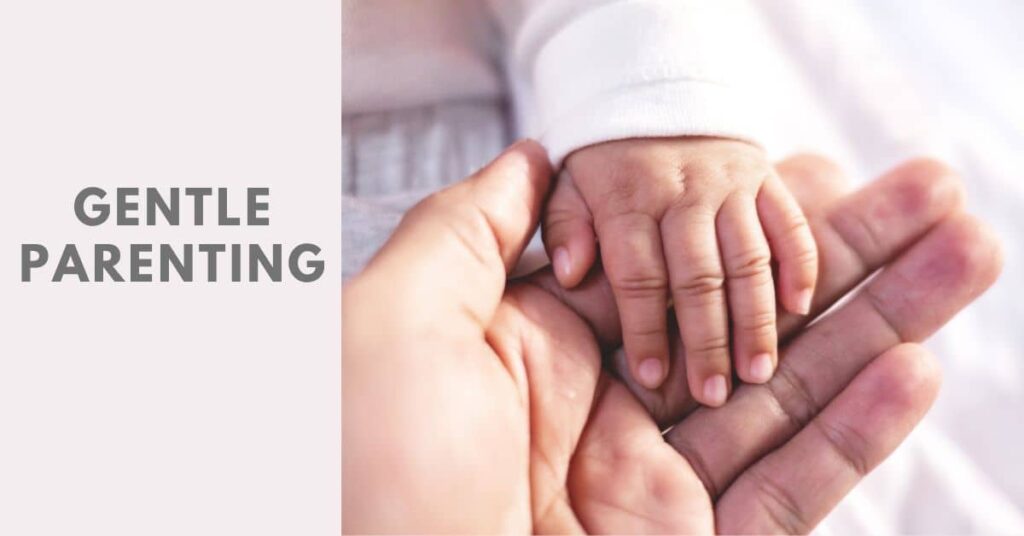Raising children is one of the most significant responsibilities in life. Parents’ level of care, guidance, and support shapes a child’s growth, development, and overall well-being. Though parenting requires continuous work and patience, focusing on key qualities that foster a nurturing environment where children feel empowered and loved helps create a solid foundation for success and happiness.
Unconditional Love and Support
Unconditional love is the most vital characteristic of good parenting. Loving your child regardless of their faults, imperfections, and mistakes shows them they are valued for who they are. Providing emotional support through affection, compassion, and comfort builds a sense of security within the parent-child relationship.
According to a study by Child Trends, 93% of teenagers say their parents support them during difficult times. Feeling unconditionally loved and emotionally supported is essential for a child’s healthy development and well-being. Some ways to demonstrate unconditional love and support include:
- Express affection openly and often through hugs, kisses, and saying “I love you” daily.
- Listen without judgment when your child wants to talk. Please give them your full attention and engagement.
- Support your child’s interests and dreams. Please encourage them to pursue goals and passions that motivate them.
- Comfort your child during challenging situations or when they feel distressed or discouraged. Reassure them of your love and support.
Providing unconditional love and emotional support gives children a secure base to grow, learn, and mature into responsible, independent individuals. With the foundation of unconditional love, children gain confidence in themselves and their ability to succeed.
Effective Communication and Active Listening
Communication is the basis for connection within relationships, a key characteristic of good parenting. Taking time to actively listen to your child and understand their perspective shows you value them. Practicing open, honest communication with your child helps build trust and closeness.
Some strategies for effective communication and active listening with your kids include:
- Ask open-ended questions to encourage meaningful conversations. Show interest in the details of your child’s life.
- Listen to understand rather than reply. Pay attention to verbal and nonverbal cues to understand the meaning and emotion behind your child’s words.
- Engage in regular conversations with your child. Please discuss anything on your mind, and share details of each other’s day, hopes, challenges, and joys.
- Express an accepting, non-judgmental attitude. Let your child know they can share openly without fear of criticism or harsh judgment. Practice reflective listening to ensure you understand them correctly.
- Share details of your life with your child as well. Model the kind of openness and sharing you want to have with them. Interact with honesty, sincerity, and transparency.
Communication and listening are ongoing interactions that require work to maintain. Keeping an open, accepting, and engaging communication style helps ensure your child will come to you for guidance and share the ups and downs of their experiences. Through meaningful conversations and quality interactions, closeness and trust in the relationship deepen.
Setting Boundaries and Discipline
Effective discipline requires balancing limits and consequences with nurturance and understanding. Setting clear rules and boundaries gives children structure and guidance for learning self-control and appropriate behavior. Though discipline is challenging, approaching it with patience, consistency, and love helps motivate children to make good choices.
Some tips for positive discipline and boundary setting include:
- Establish reasonable rules and limits based on your child’s developmental level. Explain the reasons for rules to help them understand expectations.
- Enforce rules consistently with reasonable consequences when broken. Follow through promptly to maximize the learning opportunity.
- Model positive behavior. Practice the kind of conduct you want to see from your child. Be a good role model through your actions and reactions.
- Use timeouts for both you and your child. Give time to settle emotions and reflect on the situation before addressing it. Timeouts allow an opportunity for learning once tensions fade.
- Offer praise and positive reinforcement of good behavior and accomplishments. Recognize and reward your child’s efforts and achievements to motivate continued progress.
- Explore the underlying motivations for your child’s behavior before reacting. Seek to understand the why behind their choices to find the best way forward.
With consistency, patience, love, and understanding, discipline helps build character and teaches children positive values and behavior. Maintaining high yet reasonable expectations and following through with appropriate consequences when needed shows you care enough to teach them well. Finding the balance of compassion and limit-setting takes time but pays off through the growth of self-discipline and life skills your child develops.
Role Modeling
Children often mimic parents’ and caregivers’ words, behaviors, and actions. Modeling the kind of conduct you want to see is one of the most important characteristics of effective parenting. Children learn values, habits, beliefs, and acceptable ways of interacting with others through what they observe every day.
Some essential ways to be a positive role model for your child include:
- Practice positive habits and self-care. Exercise, eat healthy, manage stress, and pursue your interests and hobbies. Model a balanced lifestyle.
- Show positive ways of interacting with others. Be respectful, courteous, and kind in your communications and relationships. Model empathy, compassion, and conflict resolution skills.
- Maintain an open, learning mindset. Model intellectual curiosity and the ability to consider other perspectives by engaging in reading and thought-provoking discussions.
- Model resilience and optimism. Show your child how to navigate difficulties and setbacks with determination, hope, flexibility, and problem-solving ability.
- Admit when you are wrong and learn from your mistakes. Apologize sincerely when needed. Model taking responsibility for your words and actions with humility and grace.
- Express gratitude and find the bright side. Model an attitude of appreciation for life’s blessings and focus on positive interpretations of events and circumstances. Spread optimism and good cheer.
Children absorb life lessons from all they observe in the world around them, but parents have the most significant influence and responsibility as role models. By modeling integrity, positive thinking, continuous self-improvement, and healthy relationships, parents shape character and life skills in their children that serve them well into adulthood. Each day offers an opportunity to model values and the principles you hope to instill. Through conscious effort and consideration of the example you set, you can positively impact your child’s development in meaningful ways.
Encouragement and Empowerment
Encouraging your child’s interests, efforts, and accomplishments motivates them to pursue their goals and dreams. Providing motivation and empowerment helps build resilience and self-esteem, allowing children to embrace challenges and reach their full potential.
Some ways to empower and encourage your child include:
- Praise their efforts and achievements, both big and small. Recognize what they do well and the progress they make. Help them appreciate their strengths, skills, and abilities.
- Support them in pursuing their interests and passions. Help them access opportunities and resources to immerse themselves in areas that spark their curiosity or bring them joy.
- Help them break down big goals into manageable steps. Work together on a plan to build competence and confidence in achieving each milestone.
- Give them opportunities to make choices and control decisions that impact them. Let them weigh options and consider consequences to foster independence and problem-solving skills.
- Cheer them on through setbacks and failures. Help them see that mistakes and imperfections are a natural part of learning and growth. Encourage a resilient spirit.
- Express belief in their abilities to reach goals and overcome obstacles. Your confidence in them builds their confidence from within.
Providing encouragement and empowerment helps motivate children to discover and pursue their dreams. Through support, opportunities, and belief in their abilities, children gain the confidence to face challenges, learn from failures, and work to achieve their potential. With the motivation and empowerment you provide as a parent, their future remains filled with promise and possibility.
In conclusion, parenting is a journey that requires dedication and conscious effort but yields rich rewards. You help shape your child’s character and prepare them to lead a meaningful, purposeful life by cultivating unconditional love, effective communication, positive discipline, role modeling, and empowerment.
Though not an easy undertaking, parenting provides an opportunity to instill principles, values, and wisdom in a new generation and guide them to reach their full potential. With patience, understanding, and love, you can positively impact your child’s life in a way that serves them well into the future. Focusing on what matters and making the most of moments together each day creates a nurturing environment where children can thrive. Despite the challenges, parenting remains life’s greatest honor and joy.
FAQ:
What are the qualities of a responsible parent?
A responsible parent shows unconditional love, sets clear boundaries, communicates effectively, and is a positive role model. Responsible parents maintain a nurturing environment where children can thrive.
How can I be a more supportive parent to my child?
Show interest in your child’s life by listening without judgment and engaging in meaningful conversations. Express belief in their abilities and encourage their goals and dreams. Provide comfort and reassurance, especially during difficult times. Let your child know you accept them for who they are.
What is authoritative parenting, and why is it considered effective?
Authoritative parenting balances nurturance, affection, and support with firm limits. It is effective because it fosters independence and competence by setting high expectations and encouraging children to make thoughtful choices. Authoritative parents guide their kids through open communication, negotiation, and reasoning.
What is the difference between permissive and authoritative parenting styles?
Permissive parents do not set clear boundaries and rules in place. They take a very lenient approach that can lead to behavior problems and a lack of self-discipline. Authoritative parents establish reasonable rules and limits through open communication. They consider children’s needs and guide behavior through warmth, reason, and support. Permissiveness emphasizes freedom, while authoritativeness provides nurturing guidance.
How does effective parenting contribute to a child’s academic success?
Effective parenting fosters qualities that support academic achievements, like motivation, self-discipline, confidence, and resilience. Authoritative parents maintain high yet reasonable expectations for their child’s learning and performance. They engage in their child’s education by encouraging study habits, assisting with homework, and participating in school activities or volunteering when possible. These behaviors promote a growth mindset and help children develop a positive learning attitude, which translates to success in the classroom.
What role does effective communication play in building a strong parent-child relationship?
Effective communication builds closeness, trust, and understanding within the parent-child relationship. Parents gain insight into their child’s experiences, needs, and perspectives through engaged listening, open sharing, and meaningful conversations. Children feel heard, accepted, and supported. Good communication lets parents explain their reasoning, values, and limits, helping kids understand expectations and make better choices. Communication is the foundation for a healthy, connected relationship between parent and child.
How can I discipline my child effectively without being too harsh?
Positive discipline focused on teaching and guiding behavior is most effective. Some tips include:
- Explain reasons for rules and limits. Help your child understand why certain behaviors are unacceptable and how they can make better choices.
- Be consistent and follow through with reasonable consequences when rules are broken. Issue consequences promptly to maximize learning.
- Model positive behavior through your actions and words. Practice the conduct you want to see from your child.
- Listen to understand their underlying motivations before reacting. Look for ways to meet needs and motivate cooperation.
- Praise and reward good behavior. Offer encouragement and positive reinforcement to motivate your child for continued progress.
- Give timeouts for reflection. Take a few minutes to allow emotions to settle before addressing issues. Look for opportunities to problem-solve together.
- Maintain a nurturing, supportive environment. Balance limits with warmth, affection, and quality time together. Express belief in your child’s ability to learn and grow.
What are some strategies for setting healthy boundaries with children?
Some strategies for setting healthy boundaries include:
- Establish rules based on your child’s age and developmental level. Explain the reasons behind limits to gain cooperation.
- Be consistent with follow-through. Enforce reasonable consequences when limits are pushed or broken. Do not negotiate endlessly or give in to bad behavior.
- Model the behavior you want to see. Practice self-discipline, moderation, and delayed gratification in your own life.
- Say “no” when needed. Do not feel guilty about setting limits to protect your child’s health, safety, values or work ethic.
- Make time for uninterrupted conversations. Remove distractions so you can engage fully when spending time together. Be present and listen.
- Find compromise when possible. Be willing to negotiate and find solutions that meet the needs of both parent and child. This teaches cooperation and conflict-resolution skills.
- Provide opportunities for your child to make choices. Allow them to control some aspects of life to foster independence and confidence from an early age.
- Be flexible and willing to adjust based on your child’s needs and circumstances. Review rules over time and revise them as needed to ensure they remain reasonable and appropriate.
How does being a role model influence a child’s development and behavior?
Children learn through observing and imitating parents, caregivers, and other role models. Role models have a profound influence over:
- Values and belief systems. Children adopt the principles and standards of conduct they see role models demonstrate through words and actions.
- Habits and lifestyle. Role models shape daily practices related to self-care, interactions with others, and time management or work ethic.
- Resilience and problem-solving. Witnessing role models navigate difficulties with optimism, flexibility, and determination helps build these qualities in children.
- Confidence and self-esteem. Role models influence how children perceive themselves through the responses and feedback they provide. Their belief in a child’s abilities motivates the child from within.
- Relationships and communication. Role models teach children how to interact through the example they set in their relationships and conversations.
- Interests and hobbies. Children often develop an enthusiasm for the activities and subjects they observe role models exploring in everyday life.
In all these ways, role models shape character and reinforce the life skills children need to become responsible, independent, and well-adjusted individuals. Parents have the most significant opportunity and responsibility to be positive examples through their daily words, actions, and responses.

I’m Mithun Debnath, a dedicated dad and the founder of Papa Parenting. I’m here to share my parenting journey, tips, and insights to make your life as a parent a little easier. Join me as we navigate the adventures of fatherhood together.






